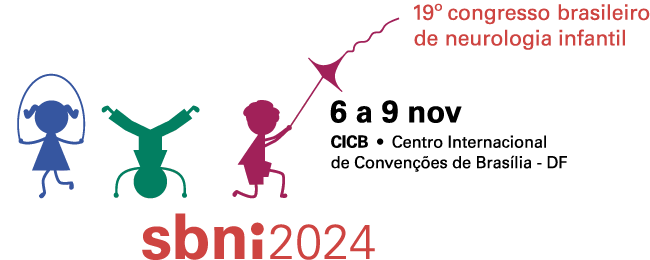Dados do Trabalho
Título
EPIDEMIOLOGICAL CHARACTERISTICS ASSOCIATED WITH PARENTAL KNOWLEDGE REGARDING NEURODEVELOPMENT IN CHILDREN WITH EARLY-ONSET EPILEPSY
Introdução
Parental attitudes may influence the neurodevelopmental outcomes of children. Epidemiological factors may impact parental knowledge and attitudes towards managing the neurodevelopment of children with chronic conditions such as epilepsy.
Objetivo
To explore the epidemiological characteristics associated with parental knowledge and attitudes regarding neurodevelopment in children with early-onset epilepsy.
Método
We collected clinical and epidemiological data from children with early-onset epilepsy at a tertiary epilepsy center using a structured questionnaire. This data was correlated with responses from a validated questionnaire assessing parental knowledge and attitudes about neurodevelopment. The questionnaire evaluated i) appropriate attitudes at different developmental stages; ii) general knowledge of neurodevelopment; iii) knowledge of signs of developmental abnormalities. Participants were parents of children aged up to 5 years with seizure onset before age 3.
Resultados
Thirty-one parents participated (mean age 31 years, range 16 to 48 years; 3 fathers, 28 mothers). The children’s ages ranged from 3 to 57 months (mean age 28 months). There were no significant differences in mean scores for knowledge of general neurodevelopment or of signs of developmental abnormalities based on the parent’s gender, years of education, income, participation in a rehabilitation program, or the child’s neurodevelopmental status. However, parents with incomes above the minimum wage demonstrated significantly better attitudes than those with lower incomes (T-test, p=0.012). No correlation was found between the respondent’s age or the child’s age and the percentage of correct answers regarding general neurodevelopment and signs of abnormalities. A mild positive correlation was observed between the child’s current age and the correctness of parental attitudes (r=0.36, p=0.042).
Conclusão
In this study, most epidemiological factors did not influence the parental knowledge about neurodevelopment and signs of abnormalities. However, higher income and the older age of the child were associated with better scores in the attitude questionnaire. These findings highlight the need for targeted educational interventions that address the specific needs of lower-income families and consider the developmental stage of the child to improve overall parental knowledge and attitudes in contributing to the neurodevelopment of children at high risk.
Referências
2021-2022 KNOWLEDGE, ATTITUDES AND PRACTICES SURVEY ON EARLY CHILDHOOD DEVELOPMENTAL MONITORING IN KAZAKHSTAN - UNICEF
Palavras Chave
Neurodevelopment; early-onset epilepsy; neurodevelopmental disorders
Área
Epilepsias
Autores
GABRIELA BORGES DE OLIVEIRA NOETHEN, ANA CAROLINA COAN, ISABELLE SALGADO CASTELLANO
